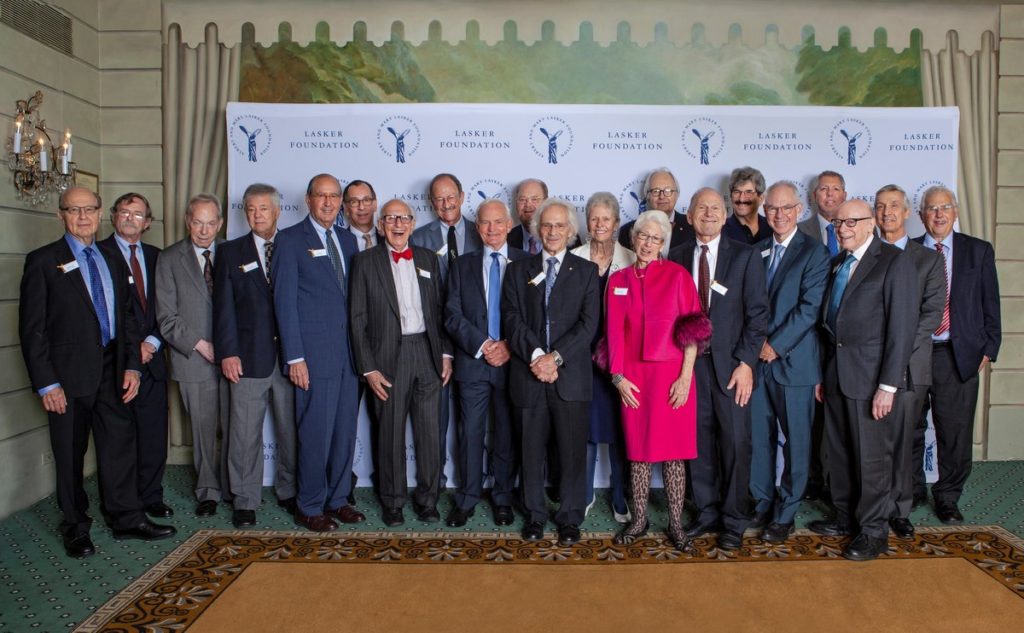All eyes are on the new Lasker Laureates each year as hundreds of people gather at The Pierre, a hotel in New York City, to celebrate scientific achievements at the awards luncheon. Guests buzz about the accomplishments of the winners and eagerly greet and congratulate them for their work. The visitors include numerous scientists whose dedication to biomedical research has laid the foundations of our understanding of biology and improved human health and longevity. For example, 2018 luncheon guests included the scientists who discovered the origins of cancer, developed drugs to cure hepatitis C and to alleviate arthritis, and defined the principles needed to begin addressing coronary heart disease. This year, twenty-one of these prominent scientists who have received Lasker Awards over the years in recognition of their work, assembled during the luncheon for a photograph.

Twenty-one Lasker Laureates at the 2018 awards luncheon. From left to right: Robert Roeder, Arthur Horwich, Solomon Snyder, Michael Brown, Alfred Sommer, Michael Sofia, Eric Kandel, Harold Varmus, John Glen, James Rothman, Marc Feldmann, Joan Steitz, Nancy Wexler, James Darnell, Michael Grunstein, Gary Ruvkun, Charles Sawyers, Jeffrey Friedman, Joseph Goldstein, David Allis, Bruce Alberts.
“What a pleasure and delight to be with several generations of fellow Lasker Laureates. Each is a legend! To meet them personally, and be photographed amongst them, was a real honor. You can see just how pleased they all were to be together!” said Al Sommer from Johns Hopkins University.
Sommer won a 1997 Lasker Award for demonstrating that vitamin A could strengthen the immune response against infections that are common in the developing world, a discovery that saved the lives of thousands of children.
“It was wonderful to be able to fly from California to attend the luncheon to honor this year’s class of very deserving and inspiring awardees,” said Bruce Alberts from the University of California, San Francisco. Alberts received a Lasker Award in 2016 for research that uncovered the details of DNA replication and protein biochemistry and his dedicated leadership in improving science education. “Especially moving for me was the award to Joan Steitz, whom I first got to know as a brilliant young graduate student at Harvard, where I served as her teaching assistant.”
Steitz traveled from Yale University to accept the 2018 Lasker Award for her pioneering work in RNA biology, mentorship, and devotion to supporting women in science.
“I am thrilled and deeply honored to join such a distinguished group of scientists. The photo underscores for me that there should be more women in the picture,” she said.
Nominations for the next set of awards are open now; nominating more women will be key to fulfilling this wish in the coming years.
